I recently listened to my favourite motorcycle-related podcast, this episode of Highside/Lowside by Revzilla where they talked about common motorcycle maintenance mistakes everyone makes. It was a great topic, as we all make mistakes.
One question that they didn’t answer very well was:
- How do you build confidence doing your own motorcycle maintenance?
In other words:
- How do you get started in motorcycle maintenance?
At one point, we were all beginners. I’m still definitely a beginner. There are always new projects that intimidate me, and I make sure I have a good day or two to do any job.
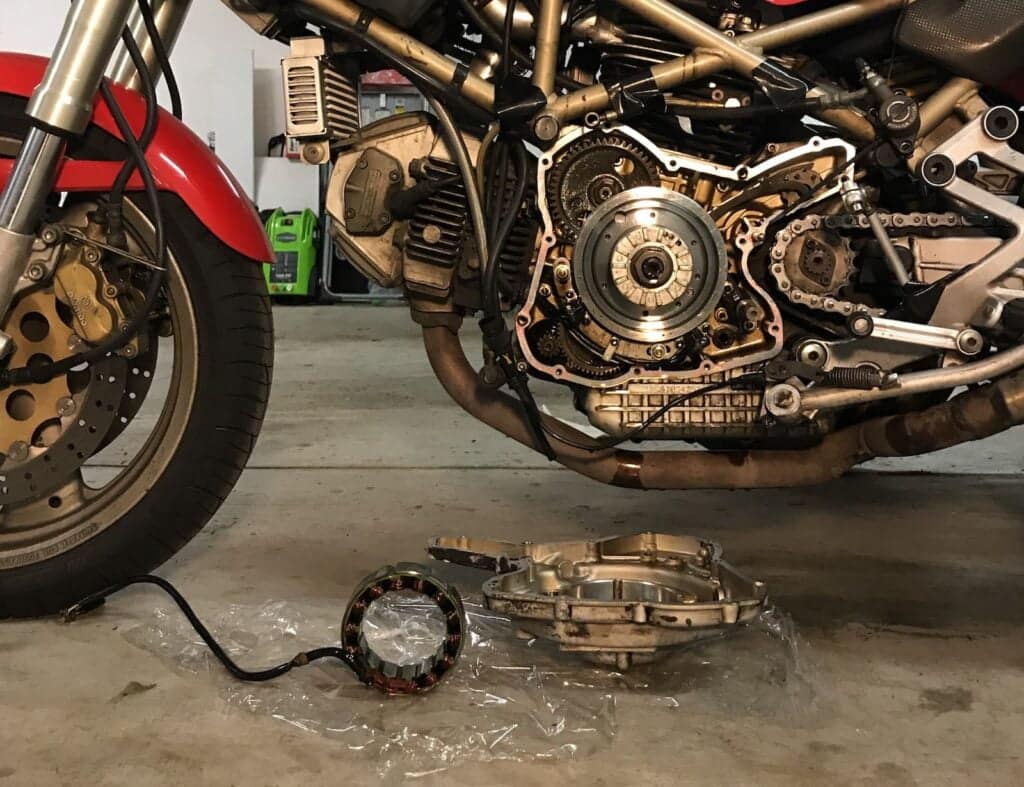
If someone says “this takes a few hours”, I know it’ll take me twice that long, spread out over a week or two as I find the right tools and spares to finish a job — no matter how well-prepared I thought I was.
But something that is interesting for me is: how do you build the confidence to do your first motorcycle maintenance job?
It could be a small job, like changing the oil or re-aligning the rear wheel, or a big one, involving a semi tear-down. But whatever it is, you need confidence, otherwise you won’t get started at all.
Here is everything I’ve learned about getting started in motorcycle maintenance.
Are you obsessed with motorcycles?
Well, I am. That’s why I created this site — as an outlet. I love learning and sharing what others might find useful. If you like what you read here, and you’re a fraction as obsessed as I am, you might like to know when I’ve published more. (Check the latest for an idea of what you’ll see.)
Preface — Do your homework — Read books, watch videos, read blog posts
This is just a section with all the obvious things. Read books, watch YouTube videos, read forum posts — the obvious basics that need to be mentioned (briefly).
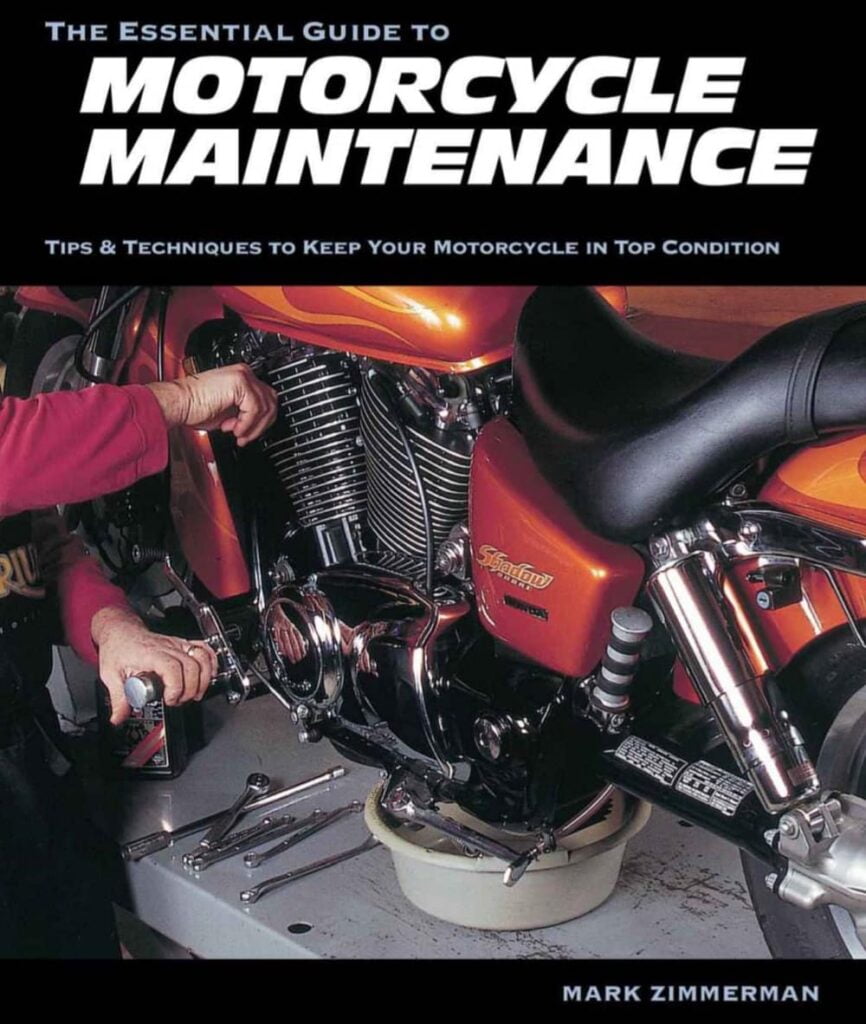
One of the most important things to do in any motorcycle maintenance task is to do your homework.
Many people mention this. It’s not new, so I’m just going to mention it briefly.
When doing any task, make sure you
- Read the instructions in the shop manual from start to finish. Go over each one and imagine yourself doing it. If you have difficulty… try and figure it out by googling it.
Many people recommend Haynes manuals. I personally don’t like them. They’re good if you don’t have the actual shop manual, but I’d rather pay for a copy of the shop manual. The Haynes manuals have confusing page numbering schemes and tend to gloss over important parts of every motorcycle.
- Buy a general book about motorcycle maintenance. My favourite is a book by Mark Zimmerman called “The Essential Guide to Motorcycle Maintenance“.
- Watch videos of people doing the motorcycle maintenance task online. Even if you don’t find it for your bike, you’d be surprised how much similarity there is between yours and other bikes.
- Read forum guides. Sometimes guides people post in forums have invaluable hints on shortcuts you can take, e.g. not using the official tools for something.
If all of it seems hard, you might even want to consider getting a motorcycle that’s easy to service on which you can learn how to do motorcycle maintenance. Some common examples are a Honda Grom, a Kawasaki Z125, or a Royal Enfield anything.
Start with small motorcycle maintenance jobs (Chain, Oil)
In most motorcycle maintenance manuals, there are usually only three motorcycle maintenance tasks that manufacturers expect you to do and don’t say “consider going to a shop for”:
- Service the chain (clean/lube it) and adjust the tension, if you have a chain.
- Change the oil (sometimes manuals don’t even want you to change the filter yourself!), and
- Grease external pivot points, e.g. kickstand
That’s it. These are motorcycle maintenance tasks that they say you shouldn’t even go to motorcycle garage to have done. So, start with these!
Of course, it’s really easy to go to the next level and:
- Change the oil filter. Most manuals only want you to do so every second oil change, but it can’t hurt to learn.
- Check the fuses. It’s nice to know where they are in case things go wrong. Make sure some spare fuses are in there.
- Retorque (or retighten) bolts. You can buy a torque wrench or two and get to all the big bolts around the bike, making sure it hasn’t shaken itself loose.
Once you’ve done a few basics and feel more confident, you can move on to next level things like brake pads, bleeding a clutch, etc.
Give yourself way too much time
Often people on forums will say “This is a 2-hour job” or so forth. Never!!
One thing that saps people’s confidence (mine, anyway) is running out of time. You think “This should have been finished already!”. Then you want to go for a ride but can’t because your bike is in pieces.
Generally, I double the time estimates people give for tasks. In the beginning, I assumed everything would take 3-4 times as long, and that there would be a strong risk of a delay of a week or more mid-job as I had to go find specific parts or tools that I didn’t know I needed.
So give yourself a lot of time, expect the unexpected, and make sure you have an alternative form of transport. With those precautions, any job is feasible.
Have a friend with you to help/encourage/console
This is easier said than done in today’s age, where we’re all busy and have other priorities. A good friend who’s willing to spend a whole day with you on your project is a great friend you should keep!
When I was a lot younger working on cars (a long time ago), having a friend come over to help with a long and difficult project helped me see it through. Every time I got stuck, they’d encourage me to keep going and try something different. Sometimes just to bang harder.
I have friends around the world who might help, but they usually have their own projects, or children, or jobs that get in the way.
I could have really benefited from a friend when I was recently rebuilding my CBR600F4i’s forks. I spent around 15 minutes hitting a piece of metal against the ground (via a towel), trying to get something loose. I thought “Is this right??” A friend may have helped me Google something, or just encouraged me to keep going.
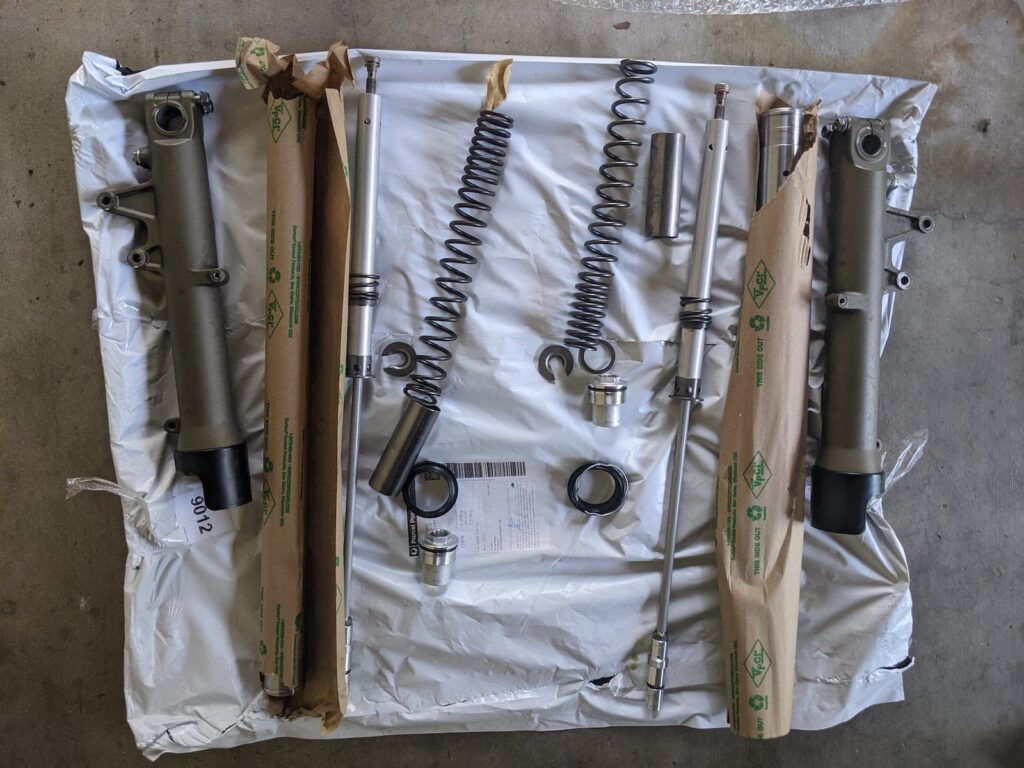
There was one time when I was banging away on a fork tube (don’t worry, using plenty of rags to cushion the blows) trying to get something to come out the other end. I imagined an old friend saying “Hit it harder! Again!” Eventually, it worked. I needed the encouragement, even though it was in my head.
Nonetheless, if you’re lucky enough to have a helpful friend in real life, they’re invaluable. Take them with you wherever you go.
Take a motorcycle maintenance class
In many major cities there are public workshops where mechanics teach motorcycle maintenance.
In San Francisco I used to go to Moto Guild, where you could either rent a lift and do your own work, or take a class given by a local mechanic. But in many cities of the world there are a few garages that give classes.
A few common classes people teach are
- Doing a basic service — changing oil, filter, checking fluids, re-torquing bolts, greasing parts, and adjusting chain tension
- Braking systems — changing brake pads and discs
- Suspension systems — mostly adjustment, but there might be a class on maintenance
- Chain and sprockets — how to change the chain and sprockets on your bike (I tried taking this class, but they said mine was fine!)
One great class I once took was how to do a valve service on a 2-valve Ducati motor. It wasn’t hard, but involved lots of little tricks to make it easier, and I was glad to have someone teach me how to do it.
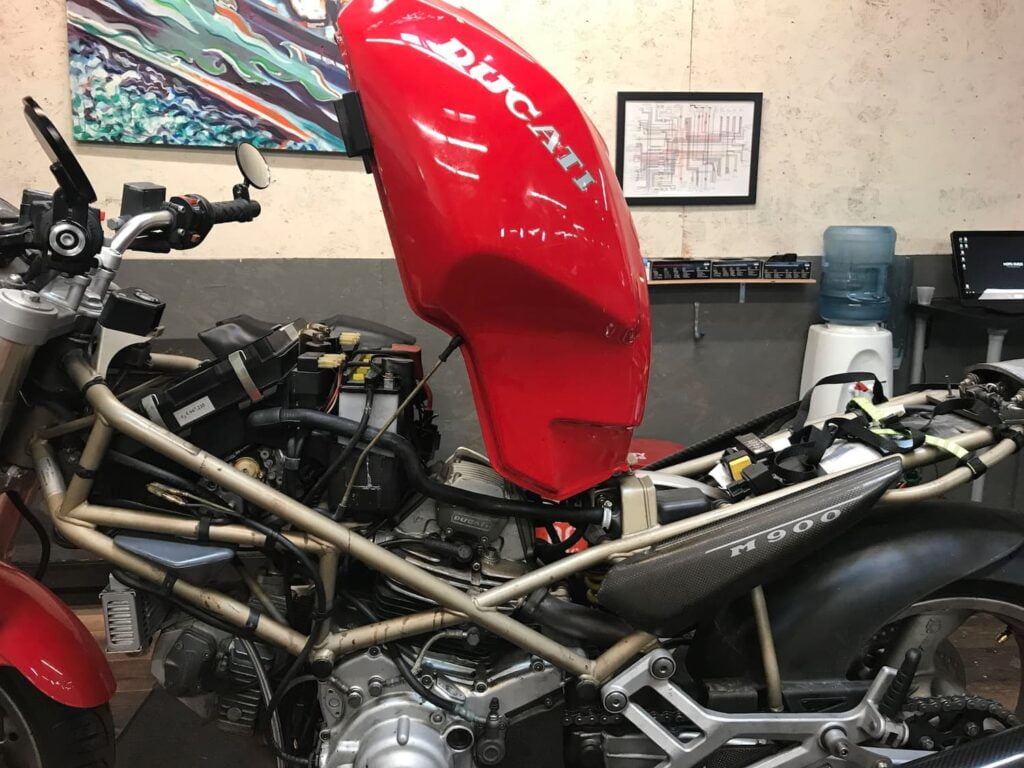
Watch other people (who are like you) do it
There’s two benefits to reading forum posts and watching YouTube tutorials.
Firstly, obviously, you see how to do something.
But secondly, it can help you build confidence because you’re watching someone like you do it.
Now, if the person doing the motorcycle maintenance looks like an alien species — an engineer wearing all white, using expensive tools, and in a high-end workshop — it won’t help that much. What you really need is a home mechanic who’s getting by with basic equipment. That’s like you and me! (Unless you happen to have a fully loaded garage…)
After watching a video a few times, you might not have a perfect idea of how to do something, but you’ll build up the courage to do it yourself. “If they can do it, (maybe) I can.”
Ask mechanics for advice (or to teach you)
Everyone needs work, but good motorcycle mechanics aren’t doing it for the money — they’re doing it because they love motorcycles and machines (or did the first time anyway, before their thousandth oil change).
Many semi-obsessed mechanics seem to really like it when people do their own work. I got my tyre changed on my F4i the other week, and asked the mechanic whether I should do forks myself, and he gave me some handy tips on raising the triple and how to deal with slightly pitted forks.
Previously, another mechanic almost refused to change my stator coil for me — she told me how to remove it, what tool I needed to pull the stator cover, and where to send it to get it re-wound. (See the pic above of my Monster 900 with the left hand cover off.)
Alternatively, if you find a mechanic who’s willing, you could pay them (more than their hourly rate) to teach you. Teaching is hard work — it’s harder than doing the work, which you get to do in peace and at your own pace. So don’t assume a mechanic is willing, but they might be.
Have a mechanic on speed dial as backup
In various cities around the world I’ve known mobile motorcycle mechanics who charge a very reasonable amount for service at your home. They show up with a van full of tools and sometimes even a lift!
In fact, in some parts, I’ve known those mechanics to charge less than what shop mechanics charge. I’m sure this is partly because it’s cash-in-hand work, and partly because they don’t need to pay rent for a shop.
Having someone like that in the vicinity is very helpful.
One time I was doing my Hyperstrada’s clutch, for example, and I couldn’t get the basket together. I had read all the guides, and was trying to do it every which way for hours (over three days), and finally gave up. The mechanic who came by was a life saver. It took him an hour, as he had a tool I lacked, a rattle gun to remove the basket from the bike, which let him do it more easily (and it was still hard).
Most recently, after rebuilding my forks on my F4i, I took it to a shop to check it over and the suspension pro found one adjustment I did wrong, but otherwise said “good to go!” which gave me confidence too. Before that, I half suspected the motorcycle may fall apart from underneath me.
Anything else?
I’m interested to hear if there’s something else that helped you get started in motorcycle maintenance.

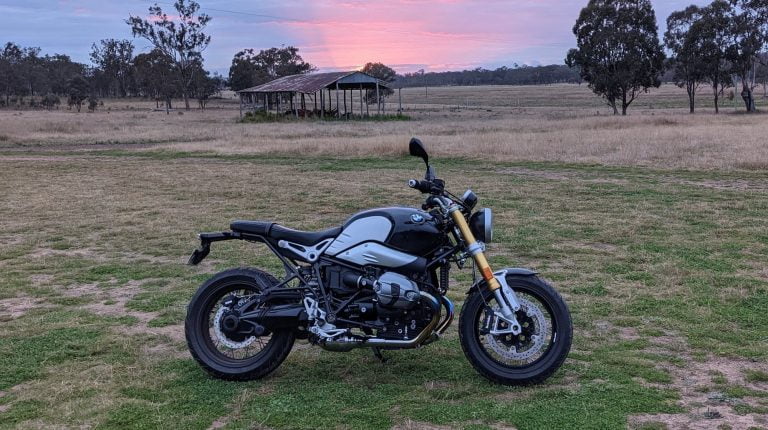
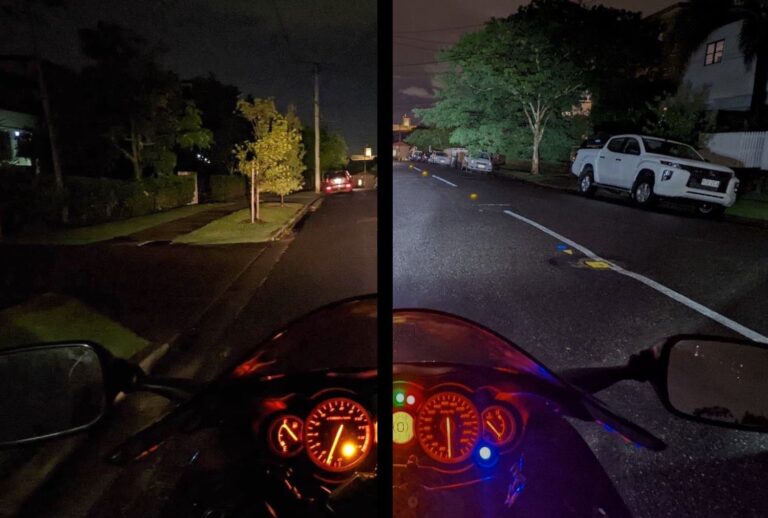
![Ducati MotoE Electric Motorcycle — What We Know So Far [UPDATED] 7 Ducati MotoE Electric Motorcycle — What We Know So Far [UPDATED]](https://motofomo.com/wp-content/uploads/2021/12/Ducati-Electric-motorcycle-MotoE-prototype-2021-768x512.jpeg)
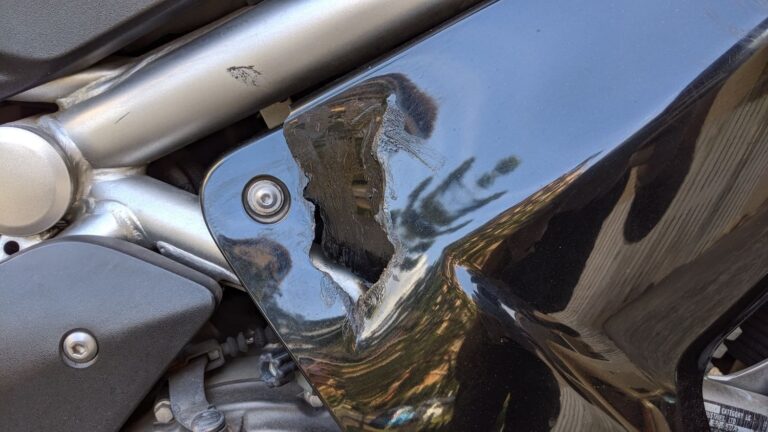

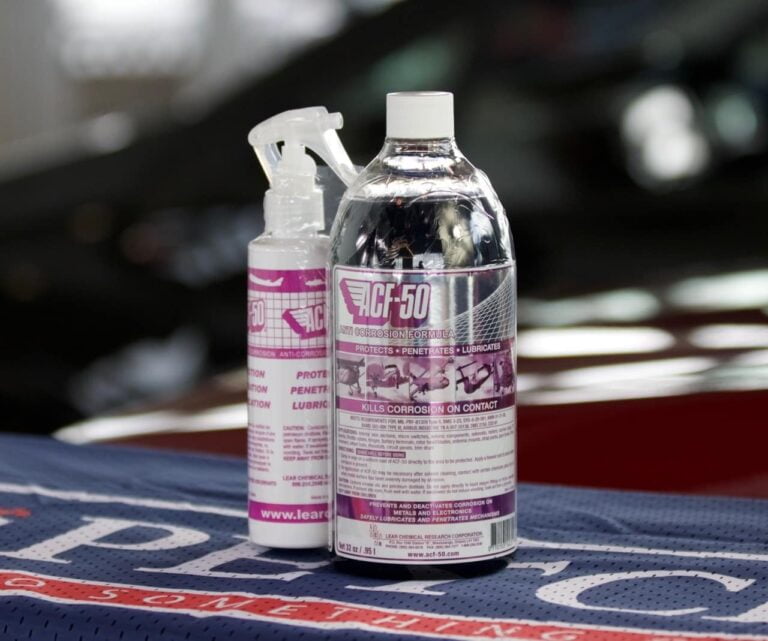
“Give yourself way too much time’
Ain’t that the truth! I was a mechanic in the military (tanks though, not motorcycles!), so I’m comfortable spinning wrenches.
When it came time to rebuild the front caliper on my wife’s Bonneville, I thought this would take an hour, two hours tops. Six hours later, I gave up on home-built solutions to free up the seized piston, so I ordered a tool. Tool gets here a week later and it was nowhere near adequate. Had to order a bigger (and far more expensive tool) from an eBayer several thousands of miles away. Three weeks after I started my little project, the new tool arrived and I was finally able to free it up….still took a lot of effort. Had that not done the trick, I (shamefully) would’ve just ordered a new caliper.
Agreed on your Haynes point, as well. I grew up with Haynes and Chiltons, but nothing beats a shop manual and YouTube. They’re OK for getting your mind around a project, and maybe using as a second/third source, but I wouldn’t go much further than that.
Great article!
Very informative post.
I’ve learned a lot from reading books about motorcycle maintenance, and despite what you said about them, I still like Haynes manuals (although I will admit that the page numbering is confusing).
Another thing that has helped me personally is to listen to a video (yes, you read that right – I said “listen to a video”) about maintenance in the background a couple of times.
Great idea! If you have any that you enjoyed please send them my way.
If you haven’t already done so, check out RevZilla’s YouTube channel. I also highly recommend this playlist from Motorcyclist Magazine: https://youtube.com/playlist?list=PLoIkhe-bQcoDvIb1vDJmU2yta55pczpsW
For me I take care to notice what/how it came apart, in order to put it back together. Taking pics with your phone helps.
Yes, excellent point. Sometimes I make drawings (well… er… sketches)
Much benefits lie in knowing the ABCs of motorcycle maintenance. It is true – everything you mentioned here can serve as a long term, cost-effective solution as opposed to fully entrusting the maintenance works to a mechanic. But more than that and more than anything else, such knowledge is actually imperative for safety. After all, we cannot expect mechanics to be always available when we need them. This is such a comprehensive guide. Hoping more motorcycle owners will be encouraged to get started.
Being mechanic for 43 yrs good work habits are formost and first. For the young ones we let them see how we work and setup. Handling problems comes next. Also lay things out when you take it apart. We use baking sheets ,you dont lose things from the job.Take your time if its the first time be aware dont rush. We have a sane slow is smooth,smooth is fast. Take care diy have fun and learn Geist Wulf Cycle Werks